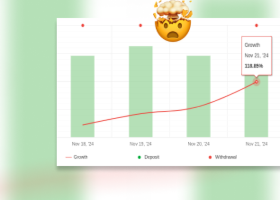Why American Teens Aren't Working Summer Jobs Anymore.
Several forces in the economy explain the shift
This was supposed to be a better year for teenagers to land summer jobs, and July has always been the peak month for such positions. Things haven't worked out that way, according to the Labor Department's latest jobs report.
On an unadjusted basis — which is probably fairer given the question is seasonal jobs — there was a 1.2 million increase in teen employment last month compared with the average for the school months of January through May. That was close to last year's tally, yet well below all but two years since the 1950s.
Worse yet, at 41.3 percent, the July labor force participation rate of teens was the lowest for the month in the post-World War II period.
The teenage summer job has been going the way of telephone booths and the cassette tape for decades. The length of the downward trend has been masked by the fact that it's hard to tease apart teen summer jobs from teen employment more generally.
Looking at the jump in the labor-force participation of teens in July over the average for the school months, it's clear that summer jobs peaked in the mid-1960s and have been sliding since.
What gives?
1. This generation is lazy
Or, as Northeastern University labor economist Alicia Modestino puts it: "Some teens are doing other stuff" like coding camp, foreign travel or beaching it.
Modestino said that the Census Bureau regularly asks teens who aren't working or looking for work whether they want a job. She said the share who answered "yes" fell to 9.5 percent in 2012 from 12.6 percent in 2000.
This is only a partial explanation, however. There are only so many families affluent enough to afford to have their kids not work.
2. Typical teen jobs are drying up
"Think Blockbuster," said Modestino. The movie rental stores employed a lot of teenagers, but have been crushed by competition from Netflix Inc. and on-demand video.
At the same time, other businesses that traditionally provided summer jobs for teens are on the rise. For instance, the latest jobs report shows restaurant and bar employment has climbed by 376,000 over the past year.
3. Teens face competition
Modestino and other labor economists believe that the single-biggest explanation for the decline is that teenagers face stiff competition for what were once summer jobs from other workers, especially immigrants.
A 2009 Federal Reserve study concluded that, for every 10 percent increase in the number of immigrants, the work hours of native teenagers fall by as much as 3.5 percent.
"Employers can choose from a larger pool of relatively unskilled adults with more job experience than teenagers and that's what they're doing," said Gary Burtless, a labor economist with the Washington-based Brookings Institution. https://www.mql5.com/en/signals/111434#!tab=history
Several forces in the economy explain the shift
This was supposed to be a better year for teenagers to land summer jobs, and July has always been the peak month for such positions. Things haven't worked out that way, according to the Labor Department's latest jobs report.
On an unadjusted basis — which is probably fairer given the question is seasonal jobs — there was a 1.2 million increase in teen employment last month compared with the average for the school months of January through May. That was close to last year's tally, yet well below all but two years since the 1950s.
Worse yet, at 41.3 percent, the July labor force participation rate of teens was the lowest for the month in the post-World War II period.
The teenage summer job has been going the way of telephone booths and the cassette tape for decades. The length of the downward trend has been masked by the fact that it's hard to tease apart teen summer jobs from teen employment more generally.
Looking at the jump in the labor-force participation of teens in July over the average for the school months, it's clear that summer jobs peaked in the mid-1960s and have been sliding since.
What gives?
1. This generation is lazy
Or, as Northeastern University labor economist Alicia Modestino puts it: "Some teens are doing other stuff" like coding camp, foreign travel or beaching it.
Modestino said that the Census Bureau regularly asks teens who aren't working or looking for work whether they want a job. She said the share who answered "yes" fell to 9.5 percent in 2012 from 12.6 percent in 2000.
This is only a partial explanation, however. There are only so many families affluent enough to afford to have their kids not work.
2. Typical teen jobs are drying up
"Think Blockbuster," said Modestino. The movie rental stores employed a lot of teenagers, but have been crushed by competition from Netflix Inc. and on-demand video.
At the same time, other businesses that traditionally provided summer jobs for teens are on the rise. For instance, the latest jobs report shows restaurant and bar employment has climbed by 376,000 over the past year.
3. Teens face competition
Modestino and other labor economists believe that the single-biggest explanation for the decline is that teenagers face stiff competition for what were once summer jobs from other workers, especially immigrants.
A 2009 Federal Reserve study concluded that, for every 10 percent increase in the number of immigrants, the work hours of native teenagers fall by as much as 3.5 percent.
"Employers can choose from a larger pool of relatively unskilled adults with more job experience than teenagers and that's what they're doing," said Gary Burtless, a labor economist with the Washington-based Brookings Institution. https://www.mql5.com/en/signals/111434#!tab=history



